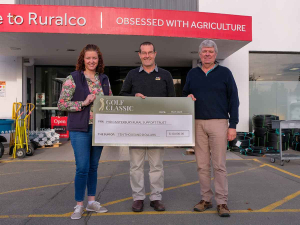The Government is co-investing in a $22 million programme aimed at reducing agricultural greenhouse gases and nitrate leaching, Agriculture Minister Damien O’Connor has announced.
The Government has committed $7.3 million over the course of seven years to the N-Vision NZ programme through the Ministry for Primary Industries’ (MPI) Sustainable Food and Fibre Futures (SFF Futures) fund, O’Connor says.
He says the programme focuses on three technology streams: N-Retain, N-Test, and N-Bio Boost.
“For our future we need innovative tools and technologies to help farmers reduce nitrogen fertiliser use on pastoral farms while maintaining production and profitability.”
Ravensdown is leading the programme, and will contribute $11 million, with Lincoln University and Plant & Food Research providing research expertise.
Ravensdown and Lincoln University will contribute in-kind funding to the value of $3.8 million.
O’Connor says the products and technologies developed through the N-Vision NZ programme will be made widely available under commercial terms.
“This will ensure that the environmental and economic benefits extend to the whole of New Zealand and not just Ravensdown’s customers,” he says.
“This Government is focussed on helping farmers reduce their environmental footprint.”
O’Connor says the work aligns with the sustainability goals of the Fit for a Better World food and fibre sector roadmap.
“Partnerships like N-Vision NZ will help us meet these goals and maintain our economic strength.
“Finding new methods to take action for the health of our soils, waterways, and climate will pave the way towards a healthier future for us all.”











